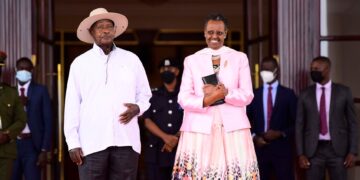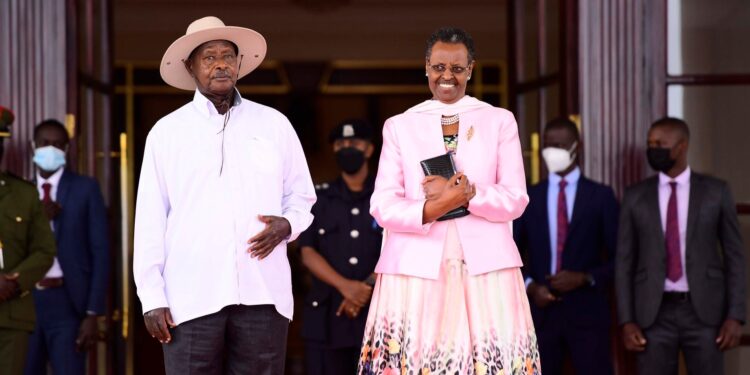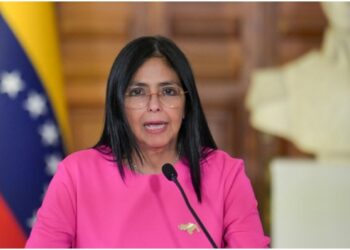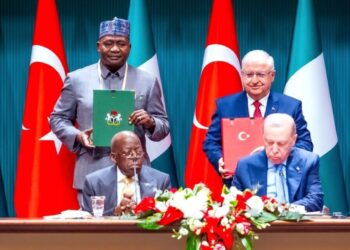By Enyichukwu Enemanna
As the country gears up for another round of elections in January 2026, Uganda’s President, in what seems like a pursuit for reconciliation with citizens of his country, has publicly tendered apologies to the people of Buganda, admitting historical errors and seeking forgiveness for past mistakes committed by his administration.
“As the top leaders of our movement, we humbly apologise for all the mistakes made by ourselves, our agents, and representatives,” President Museveni said jointly with First Lady Janet while reading from a prepared statement.
“We humbly take the responsibility of all the mistakes made by ourselves. We stand here to repent and ask for your forgiveness, especially the people of Buganda,” they said further.
They apologised in a recent public address where Museveni also commended the church for its role in fostering unity and transformation within the East African nation.
Located in the central region of Uganda, the Buganda kingdom, which includes the Ugandan capital Kampala, holds a significant role in the country’s history.
Tension between the central government and the kingdom has been a recurring theme, making this apology potentially a necessary move towards mending the existing rift.
Observers, though claiming the apologies have political connotations, view it as a positive step towards unity.
“We therefore stand here to repent and ask your forgiveness for the people of Uganda and the whole country, to restore the favour that we had with them in the beginning” and “bring healing to their hearts.”
Museveni, who has been in power for nearly four decades, is likely to be on the ballot in the January election to further extend his grip on power.
Others believe he is preparing his son, Muhoozi Kainerugaba, the army chief popular for his controversial comments on social media, to succeed him.
The opposition, however, views the move with scepticism, claiming that it is a calculated political strategy rather than a genuine expression of remorse.
An Environmental Sustainability and Circular Economy Advocate, Ronald Namurinda, argues that, “This apology, while a gesture of humility, must be seen as a strategic move to realign public perception and maintain influence,” he says.
Museveni has launched a clampdown on opposition figures and their loyalists, arresting, detaining, and in some cases torturing them.
He has insisted on the use of military courts to try civilians, including the incarcerated opposition leader, Kizza Besigye, despite a ruling of the Supreme Court placing a ban on such trials.



































